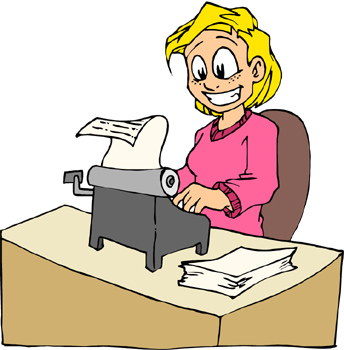
 AJGpr , A Los Angeles PR firm, found this great list of advice for PR professionals – especially newbies when dealing with journalists from Ragan’s PR Daily.
AJGpr , A Los Angeles PR firm, found this great list of advice for PR professionals – especially newbies when dealing with journalists from Ragan’s PR Daily.
- Don’t be afraid: Reporters need you as much as you need them – sometimes more if you’ve got an awesome, sought-after client. They are being challenged to churn out content FAST and they’re often relying on others (you) to provide insight, quotes, access to spokespeople and in some cases, help educate them on a complicated or new (to them) topic – all by deadline. It’s a mutually beneficial relationship so don’t be afraid to make that first contact – you might be surprised.
- Get connected: I don’t advise blindly connecting to every reporter you’ve ever heard of on LinkedIn, but after that first client briefing or email trail, connect with them on LinkedIn. Even easier, follow them on Twitter or Google+ and subscribe to their feed. My best media contacts are people that I’m connected to on LinkedIn and I truly believe that sometimes, because they see my face pop up on their news feed, they remember to reach out with a source request.
- Reporters need to network, too: More than ever, reporters are being measured by their social networks and how many people – hits – they can get to their stories and to then go back and share with their own networks. That is stressful! That being said, reporters know PR pros tend to be outgoing, well-connected individuals, and they may lean on you to broaden their reach. I’ve connected a few reporter “friendlies” with other PR pros for stories that have led to success for all involved. I also sometimes send a reporter, if they’re in my region, a link to a networking event they might find interesting or that I’m attending.
- Freelance writers rock: And there’s more of them then there were four years ago. Get in good with a freelancer and you won’t regret it – these are smart, driven and often very KIND people who at any given point could be writing something super niche, for a “smaller” outlet, and then next thing, contributing regularly to a column in a major business publication. Because of the nature of operating solo and/or remote from the main news hub, freelancers are more likely to reach out with a media request and ask for help.
- Share the S*** out of their news — and not just when it’s yours: You have a reporter friend and they just wrote about your client and you’re PUMPED so you like it, tweet it, send it to your Mom (don’t lie, you’ve done it). Your reporter friend appreciates this because they want more web traffic to their article and in many cases today, their boss is counting how many hits, RTs, comments, etc. that article receives. On several occasions I’ve actually had reporters email me after coverage hits to let me know “Yay! It got a bunch of comments” or “Wow! The story got X number of click-throughs” and then thanked me for sharing it on LinkedIn or Twitter. But it’s not just YOUR coverage that should be shared – like any solid PR pro you want to be consistently reading your media “friendlies” work and sharing it with your network. Reporters recognize this and will not forget you when it comes time to write another story.
To that PR newbie I would then say: At the end of the day, if you’re doing your job right, a reporter will not only see you as a resource, but as an industry peer. And that makes public relations more valuable, powerful and better in terms of what we can offer our clients.






